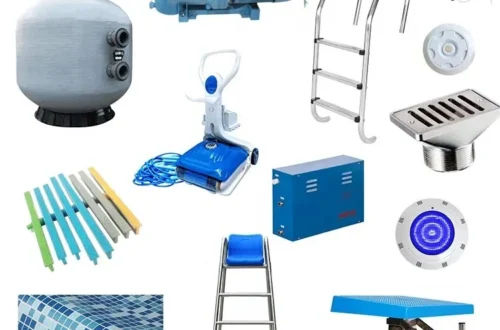Precision CNC Machined Components for Industrial Applications

# Precision CNC Machined Components for Industrial Applications
## The Importance of CNC Machining in Modern Industry
CNC machining has revolutionized the manufacturing sector by providing unparalleled precision and repeatability in producing complex parts. These computer-controlled machines have become indispensable in various industries, from aerospace to medical devices, where tight tolerances and high-quality finishes are critical.
## Understanding CNC Machined Parts
CNC (Computer Numerical Control) machined parts are components manufactured using automated machine tools that follow programmed instructions. This technology allows for:
– Exceptional accuracy down to micrometer levels
– Consistent quality across large production runs
– Ability to work with diverse materials including metals, plastics, and composites
– Complex geometries that would be difficult or impossible with manual machining
## Key Applications of Precision CNC Components
### Aerospace Industry
The aerospace sector relies heavily on CNC machining for critical components like:
– Turbine blades
– Engine parts
– Structural components
– Landing gear elements
These parts must withstand extreme conditions while maintaining perfect dimensional stability.
### Medical Equipment Manufacturing
Precision is paramount in medical applications where CNC machining produces:
– Surgical instruments
– Implants and prosthetics
– Diagnostic equipment components
– Dental devices
The biocompatibility and sterility requirements make CNC machining ideal for these sensitive applications.
### Automotive Sector
Modern vehicles incorporate numerous CNC machined parts including:
– Engine blocks and cylinder heads
– Transmission components
– Suspension parts
– Fuel system elements
The automotive industry benefits from CNC machining’s ability to maintain tight tolerances across high-volume production.
## Advantages of CNC Machining Over Conventional Methods
CNC machining offers several distinct advantages that make it superior to traditional manufacturing techniques:
1. **Higher Precision**: Computer control eliminates human error in repetitive tasks.
2. **Greater Efficiency**: Faster production times with minimal setup between operations.
3. **Enhanced Flexibility**: Quick reprogramming for design changes or new parts.
4. **Improved Safety**: Reduced operator involvement in dangerous processes.
5. **Better Consistency**: Identical parts throughout production runs.
Keyword: CNC machining parts
6. **Complex Capabilities**: Ability to create intricate shapes and features.
## Material Selection for CNC Machined Components
The choice of material significantly impacts the performance and application of CNC machined parts. Common materials include:
– **Metals**: Aluminum, steel, titanium, brass, and copper alloys
– **Plastics**: ABS, PEEK, PTFE, nylon, and polycarbonate
– **Composites**: Carbon fiber reinforced polymers and other engineered materials
Each material offers unique properties that make it suitable for specific applications, from lightweight aluminum for aerospace to biocompatible titanium for medical implants.
## Quality Control in CNC Machining
Maintaining high quality standards is essential for CNC machined components. Modern facilities implement rigorous quality control measures such as:
– Coordinate Measuring Machines (CMM) for dimensional verification
– Surface roughness testers for finish quality assessment
– Material testing for hardness and composition verification
– Statistical process control for continuous monitoring
These measures ensure that every part meets the exact specifications required by the application.
## Future Trends in CNC Machining Technology
The CNC machining industry continues to evolve with several exciting developments:
– **Smart Manufacturing**: Integration with IoT for real-time monitoring and predictive maintenance
– **Advanced Automation**: Robotic loading/unloading and automated inspection systems
– **Hybrid Machines**: Combining additive and subtractive manufacturing in single platforms
– **AI Optimization**: Machine learning algorithms for improved tool paths and process parameters
These advancements promise to further enhance the precision, efficiency, and capabilities of CNC machining for industrial applications.
## Choosing the Right CNC Machining Partner
When selecting a supplier for precision CNC machined components, consider these factors:
1. **Technical Expertise**: Experience with similar parts and materials
2. **Quality Certifications**: ISO standards and industry-specific certifications
3. **Equipment Capabilities**: Range of machines and technological sophistication
4. **Production Capacity**: Ability to meet your volume requirements
5.

